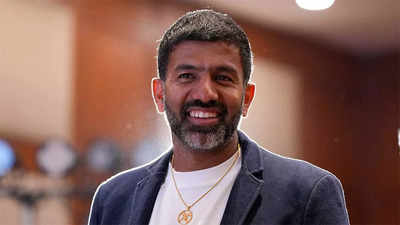Professional tennis player Rohan Bopanna has likened the dynamics of a doubles partnership to that of a marriage, emphasizing the importance of trust, communication, and mutual respect in achieving success on the court. With over two decades of experience competing at the highest level of doubles tennis, Bopanna’s insight sheds light on the intricacies of this unique form of collaboration in the sport.
In an interview, Bopanna elaborated on the parallels between a doubles partnership and a marriage, highlighting the need for a strong emotional bond and seamless coordination between partners. Just as in a marriage, where trust forms the foundation of a strong relationship, trust between doubles partners is essential for effective teamwork and cohesion on the court. Bopanna emphasized the significance of trusting one’s partner’s decisions and abilities, especially in high-pressure situations where split-second decisions can determine the outcome of a match.

SOURCE:- INDIA TODAY
Furthermore, communication plays a pivotal role in both doubles tennis and marriage. Bopanna stressed the importance of open and clear communication between partners, whether it’s discussing strategies during a match or providing support and encouragement during challenging moments. Effective communication not only enhances on-court performance but also strengthens the overall partnership, fostering a sense of unity and solidarity between the players.
SOURCE:- SKY SPORTS
Mutual respect is another cornerstone of a successful doubles partnership, according to Bopanna. Just as spouses value and appreciate each other’s strengths and contributions, doubles partners must respect each other’s skills, experiences, and individuality. Recognizing and leveraging each other’s strengths while supporting and compensating for weaknesses are essential aspects of building a cohesive and formidable doubles team.
Bopanna’s analogy underscores the intimate and symbiotic nature of doubles tennis, where two individuals must come together as a unified entity to compete against their opponents. Like a married couple navigating life’s challenges together, doubles partners must navigate the complexities of the game as a cohesive unit, relying on each other’s strengths and support to achieve shared goals.
Moreover, Bopanna’s perspective sheds light on the emotional and psychological aspects of doubles tennis, highlighting the importance of chemistry and camaraderie between partners. Beyond technical skills and physical prowess, the success of a doubles team hinges on the intangible qualities of trust, communication, and mutual respect, which form the bedrock of a strong and enduring partnership.
In essence, Rohan Bopanna’s comparison of a doubles partnership to a marriage offers valuable insights into the dynamics of teamwork and collaboration in professional tennis. By emphasizing the significance of trust, communication, and mutual respect, Bopanna provides a deeper understanding of the intricacies involved in forging successful doubles partnerships and achieving excellence on the court.
Share your views in the comments

